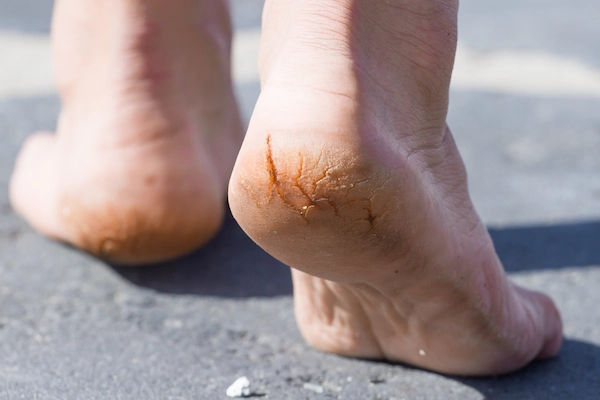Impact of Sedentary Lifestyle on Health
Learn how a sedentary lifestyle affects your health and discover simple ways to stay active. From reducing back pain to lowering disease risk, small daily movements make a big impact.


Introduction
In today’s fast-paced world, many of us spend long hours sitting, whether at a desk, in front of a screen, or during long commutes. While it may seem harmless, a sedentary lifestyle (one with little physical activity) can have serious consequences for your health.
This article explains how prolonged sitting affects your body, the risks it poses, and simple steps you can take to stay active and healthy.
What is a Sedentary Lifestyle?
A sedentary lifestyle means engaging in very little physical movement throughout the day. Common examples include:
Sitting for long hours at work
Watching TV or using a phone/computer for extended periods
Relying on cars or public transport instead of walking
Avoiding exercise or sports
Even if you exercise occasionally, sitting for most of the day can still harm your health.
How Does a Sedentary Lifestyle Affect Your Body?
This is how a sedentary lifestyle affect your body:
1. Weight Gain and Obesity
When you sit for long periods, your body burns fewer calories. Over time, this can lead to weight gain and even obesity, increasing the risk of diabetes, heart disease, and joint problems.
2. Poor Heart Health
Lack of movement slows blood circulation, raising blood pressure and cholesterol levels. This can lead to heart disease, strokes, and other cardiovascular problems.
3. Weaker Muscles and Bones
Sitting too much weakens muscles, especially in the legs and back, leading to stiffness and pain. It also reduces bone density, increasing the risk of osteoporosis (brittle bones).
4. Increased Risk of Diabetes
Inactivity affects how your body processes sugar, leading to insulin resistance—a major cause of type 2 diabetes.
5. Poor Posture and Back Pain
Slouching in chairs strains the spine, causing chronic back and neck pain. Over time, this can lead to long-term posture problems.
6. Mental Health Issues
A sedentary lifestyle is linked to higher stress, anxiety, and depression. Physical activity releases "feel-good" hormones (endorphins), so less movement can negatively impact mood.
7. Higher Risk of Certain Cancers
Studies suggest that prolonged sitting may increase the risk of colon, breast, and lung cancers due to metabolic changes and inflammation.
Simple Ways to Reduce Sedentary Habits
You don’t need intense workouts to stay healthy—small changes can make a big difference!
1. Move Every Hour
Set a reminder to stand and stretch every 30-60 minutes.
Take short walks (even around your home or office).
2. Walk More
Use stairs instead of elevators.
Park farther away to add extra steps.
Take walking breaks during work calls.
3. Stay Active at Work
Use a standing desk if possible.
Walk while talking on the phone.
Do seated leg lifts or shoulder rolls.
Consult Top Specialists for Personalised Tips
4. Exercise Regularly
Aim for at least 150 minutes of moderate exercise per week (like brisk walking, cycling, or swimming). Even 20-30 minutes daily helps!
5. Limit Screen Time
Reduce TV and phone use.
Stand or stretch during ad breaks.
6. Eat a Balanced Diet
Choose whole grains, fruits, vegetables, and lean proteins.
Avoid excessive sugary or processed foods.
When to See a Doctor?
If you experience:
Persistent back/joint pain
Unexplained weight gain
High blood pressure or cholesterol
Fatigue or mood swings
…it may be time for a check-up. A doctor can assess your health and suggest personalized ways to stay active.
Conclusion
Adopting an active lifestyle is one of the best decisions you can make for your overall health. By incorporating small movements throughout your day, you can significantly reduce the risks associated with prolonged sitting.
If you need expert advice, consider booking a consultation with a healthcare professional through Apollo 24|7. They can guide you on fitness plans, diet, and preventive health checks.
Consult Top Specialists
Consult Top Specialists for Personalised Tips

Dr. Rajib Ghose
General Physician/ Internal Medicine Specialist
26 Years • MBBS
Kolkata
B Ghose Foundation Doctor's Chamber, Kolkata
(50+ Patients)

Dr. Rajib Ghose
General Physician/ Internal Medicine Specialist
25 Years • MBBS
East Midnapore
VIVEKANANDA SEBA SADAN, East Midnapore

Dr. Abhishek Gowda
General Physician/ Internal Medicine Specialist
3 Years • MBBS MD General Medicine
Bengaluru
PRESTIGE SHANTHINIKETAN - SOCIETY CLINIC, Bengaluru

Dr. Rajshekar B
General Physician/ Internal Medicine Specialist
36 Years • Gen Med MD
Bengaluru
Six Face Clinic, Bengaluru

Dr. Moumita Roy
General Physician/ Internal Medicine Specialist
8 Years • MBBS , MD (Anesthesiology)
Kolkata
VDC Clinic, Kolkata
Consult Top Specialists

Dr. Rajib Ghose
General Physician/ Internal Medicine Specialist
26 Years • MBBS
Kolkata
B Ghose Foundation Doctor's Chamber, Kolkata
(50+ Patients)

Dr. Rajib Ghose
General Physician/ Internal Medicine Specialist
25 Years • MBBS
East Midnapore
VIVEKANANDA SEBA SADAN, East Midnapore

Dr. Abhishek Gowda
General Physician/ Internal Medicine Specialist
3 Years • MBBS MD General Medicine
Bengaluru
PRESTIGE SHANTHINIKETAN - SOCIETY CLINIC, Bengaluru

Dr. Rajshekar B
General Physician/ Internal Medicine Specialist
36 Years • Gen Med MD
Bengaluru
Six Face Clinic, Bengaluru

Dr. Moumita Roy
General Physician/ Internal Medicine Specialist
8 Years • MBBS , MD (Anesthesiology)
Kolkata
VDC Clinic, Kolkata




